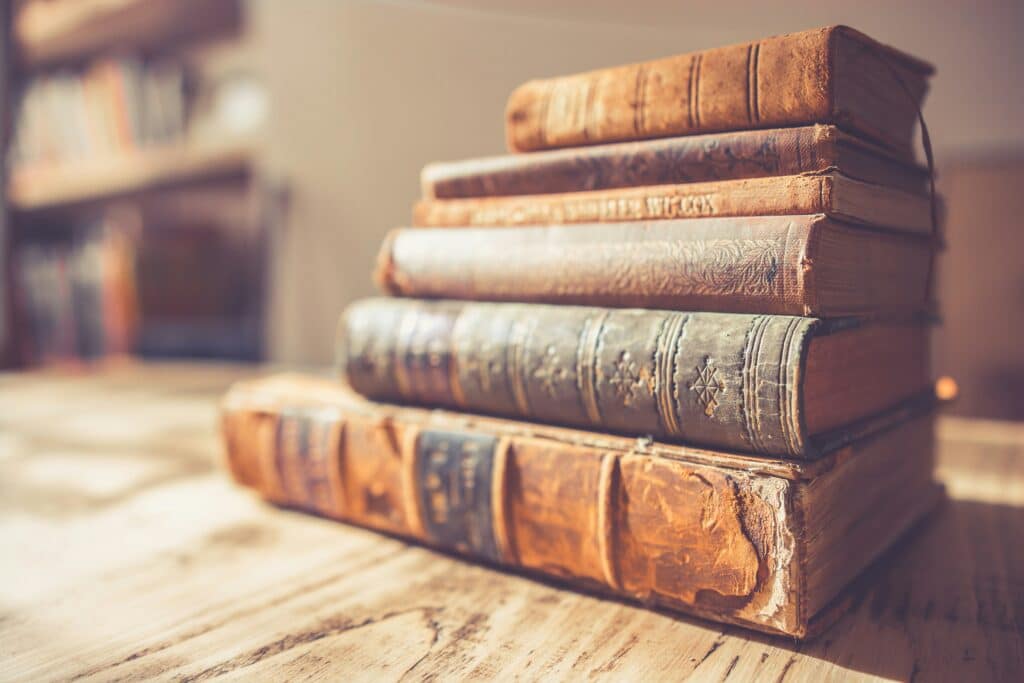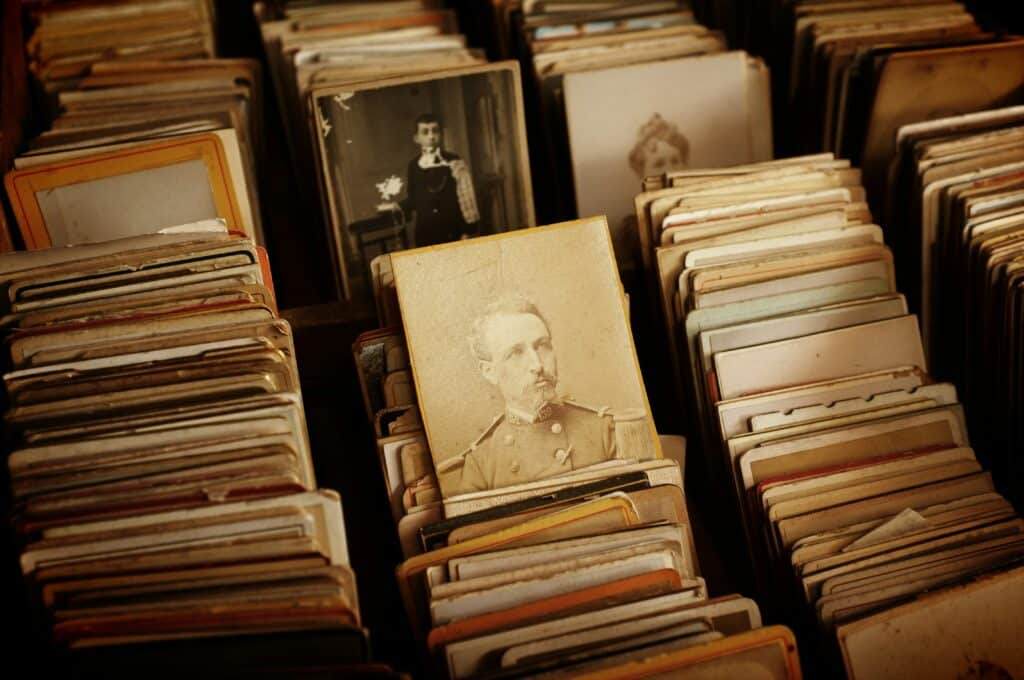A Student’s Question
Emma slouched in her history class, doodling on her notebook and wondering, “Why are we learning about old kings and long‑ago wars?” As the teacher clicked on a photo of children during the Great Depression, she explained how history helped people build safety nets like Social Security so families wouldn’t fall through the cracks today. Emma sat up, realizing that studying history can explain how today’s world came to be—and how we can shape tomorrow. Because history isn’t just about names or dates—it’s full of stories of people who made choices that still affect us. That made Emma curious: what else can history teach us?
The Broad Importance of History

History is important because it helps us understand how things change and why they happen. Students learn from history about big choices, like why some societies succeed and others fail, and why wars begin or peace lasts (mooc.org). History teaches us to think carefully, ask questions, and not just accept what someone tells us (journals.uclpress.co.uk, historians.org). When we read about history, we learn how people in the past handled tough problems—and we can use that to face our own. That’s why history is still a part of school.
Numbers That Show History Matters
| Fact | Statistic |
|---|---|
| Value compared to business or engineering | 84 % of people said history is just as important (historians.org) |
| High school sparked more interest | 68 % of people said their high school history made them want to learn more (historians.org) |
| Purpose of history in school | 78 % of teachers said the main goal is to help students become informed citizens (edweek.org) |
These numbers show that many people believe history matters just as much as jobs like engineering or business. Also, lots of students say history made them even more curious. And most teachers agree history helps students become active and informed citizens.
Skills History Builds

Here are some important skills history helps us develop:
- Critical thinking—you learn how to check if something is true or just someone’s opinion (journals.uclpress.co.uk).
- Empathy—you connect with people from different times and backgrounds and understand their feelings (cmohs.org).
- Evidence evaluation—you work with clues and sources to figure out what really happened (journals.uclpress.co.uk, historians.org).
- Civic awareness—you see how your actions as a person in society matter and how you can take part in your community (historians.org, edweek.org).
These skills matter both in school and in life. They help students not only learn but also become thoughtful citizens.
Learning from Experts and Blogs
In the scholarly sphere, experts study how history teaching builds these skills and share ideas with teachers (journals.uclpress.co.uk, historians.org). And on our blog, we try to do the same by making history fun and meaningful for learners like you. We write articles that connect past stories to today and give tips to students about how to learn history better. By reading our blog, you can get fresh ideas on how to look at history—connecting old stories with your world now.
Why Keep Studying History

So when you find yourself asking “Why do I have to learn this?”—remember that history isn’t just dusty dates. It’s a toolbox filled with smart thinking, caring about others, and knowing how to ask good questions. It helps you see how the world works and gives you the power to shape it. With stories, stats, and helpful guidance from blogs, learners like you can stay curious, confident, and ready to take part in the world. Emma, now wide awake in class, thought about how she might change her community someday using lessons from history. What will you do with the history you are learning?
Why History Should Still Be Taught in Schools
Understanding the Present Through the Past
Studying history allows us to understand the past in order to better comprehend the present. By examining historical events, we can see how they have shaped our society and culture over time. This understanding helps us make informed decisions about current issues and challenges.
Developing Critical Thinking Skills

Learning history helps us develop critical thinking skills that are essential for success in any field. History teaches us to analyze information and draw conclusions based on evidence, rather than simply accepting what we are told without question. This ability to think critically is valuable in all areas of life.
Building a Sense of Identity
History provides a sense of identity by connecting us to our heritage and culture. Understanding the struggles and achievements of those who came before us fosters a sense of pride and belonging. It helps us appreciate our roots and the journey that has led to the present.
Learning from Past Mistakes
Studying history allows us to learn from past mistakes and avoid repeating them. By examining events such as wars, economic crises, and social injustices, we can identify the factors that led to these outcomes and work to prevent similar situations in the future.
Enhancing Cultural Awareness
History exposes us to different cultures, beliefs, and practices. It broadens our understanding of the world and promotes tolerance and respect for diversity. By learning about the experiences of others, we become more empathetic and open-minded individuals.
Preparing for Active Citizenship
An understanding of history is essential for informed and active citizenship. It enables us to participate meaningfully in civic life, make informed decisions, and contribute to the betterment of society. Knowledge of historical events and movements empowers us to advocate for positive change.
Supporting Academic and Career Success

Studying history enhances skills such as research, writing, and analysis, which are valuable in many academic and professional fields. The ability to evaluate sources, construct arguments, and communicate effectively is beneficial in various careers, including law, education, journalism, and public policy.
Fostering a Lifelong Interest in Learning
History is not just about memorizing dates and facts; it is about exploring stories, understanding human experiences, and asking questions. This approach fosters a lifelong interest in learning and encourages curiosity about the world. Engaging with history can inspire individuals to continue exploring and learning throughout their lives.
Summary Table: Benefits of Studying History
| Benefit | Description |
|---|---|
| Understanding the Present | Connects past events to current issues, aiding in informed decision-making. |
| Critical Thinking Skills | Encourages analysis and evaluation of information. |
| Sense of Identity | Fosters pride and belonging through knowledge of heritage. |
| Learning from Mistakes | Helps avoid repeating past errors by understanding their causes. |
| Cultural Awareness | Promotes empathy and respect for diverse cultures. |
| Active Citizenship | Prepares individuals to engage in civic life and advocate for change. |
| Academic and Career Success | Develops transferable skills valuable in various fields. |
| Lifelong Learning | Inspires ongoing curiosity and exploration. |
How Blogs and Articles Can Help You Learn History
Making History Accessible
Sometimes, textbooks can feel heavy or hard to understand. That’s where blogs and online articles come in. They break down history into shorter, easier-to-read pieces with real-world examples, photos, and interactive content. This makes history more relatable and easier to remember. Blogs often highlight interesting stories or lesser-known events that don’t always appear in textbooks, helping learners see a wider picture of the past.
Learning History in Different Ways

Not everyone learns history the same way. Some students enjoy reading articles, others like watching videos or listening to podcasts. Blogs often include:
- Visual content: Infographics, timelines, and maps that make events easier to visualize.
- Interactive quizzes: Short quizzes to test understanding and make learning fun.
- Discussion opportunities: Some blogs allow comments, letting learners ask questions or share ideas.
- Multiple perspectives: Articles can show different viewpoints on historical events, helping students develop critical thinking.
Using these tools, learners can find ways to connect with history that suit their learning style.
Why History Blogs Are Valuable
History blogs and articles support education in ways textbooks sometimes cannot. Here are a few reasons why they’re valuable:
- Up-to-date research: Blogs often summarize new findings from the scholarly sphere, helping students stay current.
- Practical examples: They show how historical lessons apply to current events.
- Engagement: Short articles and engaging content keep students interested and motivated.
- Accessibility: Learners can access blogs on phones, tablets, or computers anytime, anywhere.
- Support for school projects: Blogs can provide extra sources, references, and explanations for assignments.
These resources can make learning history feel less like homework and more like a journey through time.
Tips for Using History Blogs Effectively
To get the most out of online history resources, students should:
- Check the source of the blog or article to make sure the information is accurate.
- Take notes while reading to remember important events, dates, and people.
- Use blogs as a starting point, not the only source of information.
- Compare different articles to see multiple perspectives on the same event.
- Apply what they learn to real-life situations, like debates or civic discussions.
Examples of How Blogs Enhance Learning
| Feature | Benefit |
|---|---|
| Infographics and timelines | Helps learners visualize events and understand chronological order. |
| Quizzes and polls | Tests understanding and reinforces learning. |
| Interactive maps | Shows locations of historical events and migration patterns. |
| Storytelling articles | Makes historical figures and events relatable and memorable. |
| Discussion sections | Encourages critical thinking and sharing ideas with peers. |
Using these features, blogs can complement classroom learning, making history more interactive and memorable.
Connecting Blogs to Everyday Life

Learning history through blogs also helps students see the relevance of the past in everyday life. For example:
- Understanding government decisions by looking at historical policies.
- Exploring social movements to see how citizens created change.
- Learning about innovations and inventions that shaped modern society.
- Appreciating cultural heritage and traditions from different parts of the world.
By connecting historical lessons to the present, students gain a deeper understanding and appreciation of history’s importance.
Conclusion
Blogs and articles are powerful tools for learners who want to explore history beyond the classroom. They make history accessible, engaging, and relevant, while offering practical ways to understand and apply lessons from the past. By using these resources wisely, students can strengthen their knowledge, critical thinking, and curiosity about the world. History is all around us, and with the help of blogs and articles, we can explore it in ways that fit our own learning style. How will you use the resources available to discover the stories of the past?
References
- American Historical Association. How Much Does the Public Value the Field of History?https://www.historians.org/teaching-learning/current-events-in-historical-context/history-the-past-and-public-culture-results-from-a-national-survey/8-how-much-does-the-public-value-the-field-of-history-and-historians-work
- American Historical Association. A Snapshot of the Public’s Views on History.https://www.historians.org/perspectives-article/a-snapshot-of-the-publics-views-on-history-national-poll-offers-valuable-insights-for-historians-and-advocates
- Education Week. Sure, We Teach History, but Do We Know Why It’s Important? https://www.edweek.org/teaching-learning/sure-we-teach-history-but-do-we-know-why-its-important/2020/01
- MOOC Blog. Why Is It Important to Study History? https://www.mooc.org/blog/why-is-it-important-to-study-history
- Journals UCL Press. The Importance of History Education. https://journals.uclpress.co.uk/herj/article/id/756
- Historians.org. Why Study History? https://www.historians.org/resource/why-study-history-1998
- CMHS. Why Is History Important for Students? https://www.cmohs.org/news-events/society-programs/character-development-program/why-is-history-important-for-students
- University of the People. Why Is History Important? https://www.uopeople.edu/blog/why-is-history-important
- Presidency Schools. The Importance of History in Education. https://presidencyschools.org/the-importance-of-history-in-education
- Eastern Washington University Online. History Education in the 21st Century.https://online.ewu.edu/degrees/education/master-arts-history/history-education-in-21st-century
I

